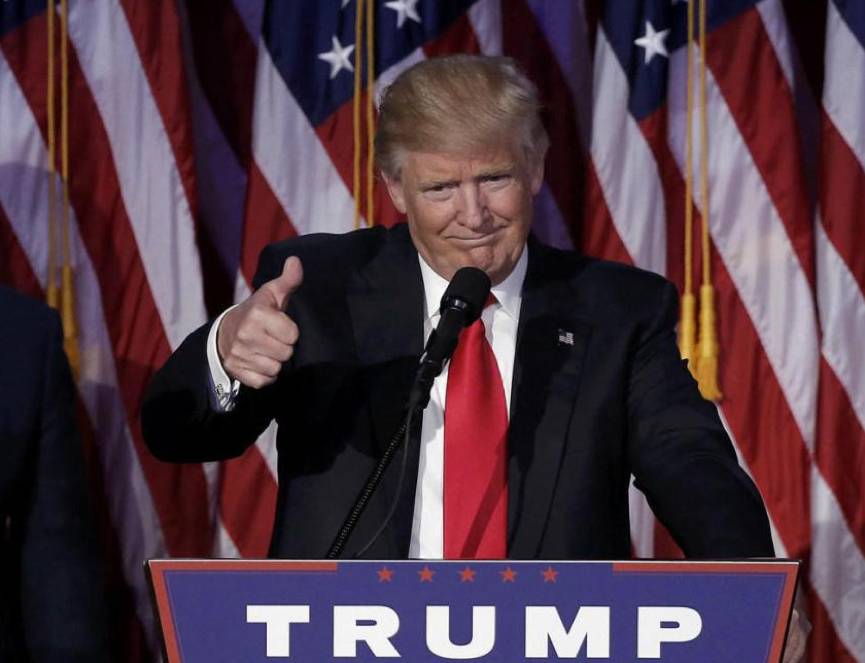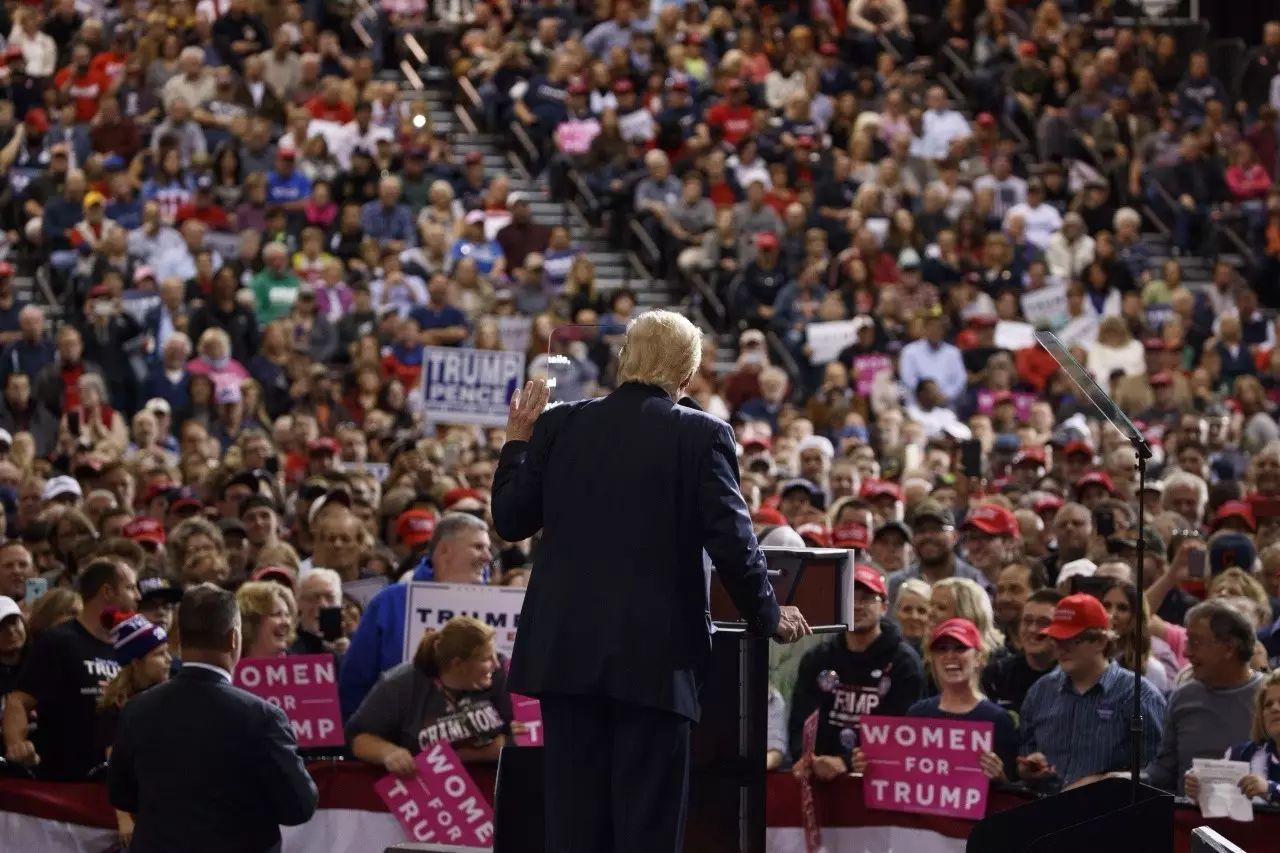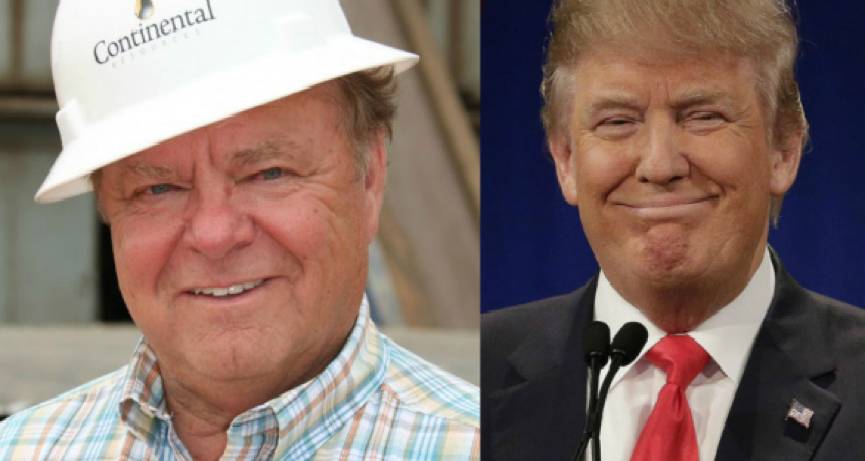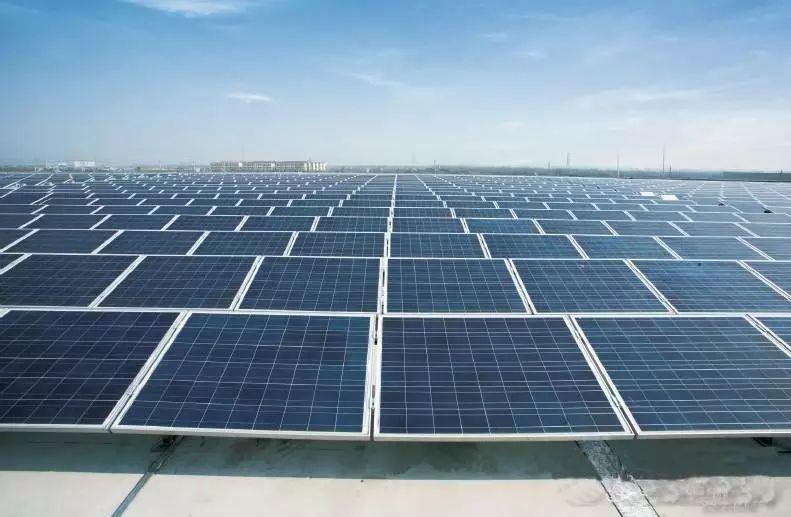
Let’s take a look at Trump’s energy view:
-
The U.S. natural gas reserves can achieve energy independence, and there is no need to contribute oil dollars to OPEC.
-
New energy investment projects have no return and deprive energy industry workers of job opportunities.
-
There should be massive economic investment to combat the pseudo proposition of global warming.
Energy policy under Trump’s 100-day plan and “America First” slogan

Trump is an active supporter of traditional fossil energy. He denies that global warming is caused by human activities, and has stated that global warming is a lie made up by China to weaken the competitiveness of American manufacturing. On October 22nd, in a summary speech of his election campaign in Gettysburg, Pennsylvania, Trump detailed a disruptive 100-day plan he had for Washington’s existing political ecology, which he claimed was a contract with American voters.
Here are a few energy industry-related plans:
-
Reduce restrictions on U.S. energy reserve production activities, including shale, natural gas, and clean coal.
-
Lift restrictions on energy infrastructure projects imposed by Obama and Clinton.
-
Revoke up to $1 billion in funding for the United Nations climate change project and use the funds to restore water and environmental infrastructure in the U.S.
Previously, in May, Trump made a speech at the American Petroleum Institute, where he criticized Obama’s energy policies and efforts to address climate change, and stated that he would cancel the Paris climate agreement signed in 2015 after taking office. However, this plan is clearly not easy to implement, so it was not mentioned in the 100-day plan.
The man behind Trump: Oil tycoon Harold Hamm

It is reported that Trump plans to nominate shale oil tycoon and founder and CEO of Continental Resources, Harold Hamm, as Energy Secretary after taking office, and Hamm is his informal energy policy advisor.In terms of energy issues, Harold Hamm and Trump’s views are surprisingly consistent. Although Harold Hamm is an informal advisor, many of Trump’s energy policy views are in line with Hamm’s. Both are staunch Americanists, believing that one fewer well drilled in the US means one more dollar flowing into the pockets of ISIS. There is no need for the petrodollar to let OPEC profit and still listen to their orders. Additionally, as a shale revolution tycoon, Harold Hamm believes that America’s abundant natural gas reserves are enough to meet the country’s energy needs for the next 200 years, and there is no need to rely on oil imports. In a media interview, he said that Trump’s energy plan could quickly achieve energy independence for the United States.
Real estate tycoons joining forces with oil tycoons make for a compelling story.
What will be the future fate of the new energy industry?

If Trump really fulfills his campaign promise and tightens investment in the new energy industry, such as canceling ITC tax-exempt policies, it will have a certain short-term impact on companies engaged in new energy and consumers of new energy products. After all, the new energy industry still relies on various government policy subsidies to some extent, and policy trends will also affect the funding capabilities of related companies, as well as the popularity of solar products. Since the implementation of ITC in 2006, the installed capacity of solar energy in the United States has grown by 1600%. Originally, ITC was expected to be cut sharply to about 10% in 2017, but the US House of Representatives announced on December 16, 2015, to extend the existing 30% to 2019 and then gradually decrease to 22% by 2021. Policy subsidies are crucial for the promotion of new technologies, not only for economic benefits, but also for market confidence.
Do you remember that the day before yesterday, we talked about the US presidential election, so we paid attention to Tesla’s acquisition of Solarcity, not without reason. After all, different energy preferences are important for the development of these two companies. The acquisition, which seemed to be a done deal, now seems uncertain, but we still hold good expectations and hope that Musk can successfully integrate Solarcity.
At a more macroscopic level, the development of new energy may not be suppressed by Trump’s election. In fact, the purpose of the new energy industry is not in conflict with Trump’s energy independence, as both are aimed at ensuring their energy status. As a businessman, it is understandable that Trump prefers short-term profitable projects rather than long-term ones like new energy. However, just as Obama’s term witnessed the shale revolution, which is almost the opposite of the “anti-oil” policy, politicians’ speeches and actions are never 100% consistent. The President Trump cannot and does not need to kill the new energy industry.
The development of new energy has its own inherent vitality. In the past ten years, the costs of new energy generation technologies such as wind power and photovoltaic power have been greatly reduced, and the rise of electric vehicles has also done sufficient market education. Therefore, canceling government subsidies may simply promote the “survival of the fittest” trend in the new energy industry, eliminating a group of people and companies that lack strength. Businesses that survive this “baptism” will embark on a healthier future.
From Heaven to Earth: Tesla’s Chess Game (Part 1)
Straubel tells how Tesla rebuilds the power grid of this century
This article is a translation by ChatGPT of a Chinese report from 42HOW. If you have any questions about it, please email bd@42how.com.
